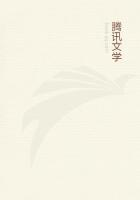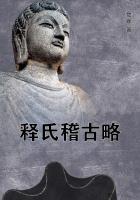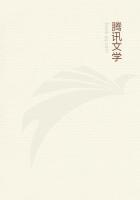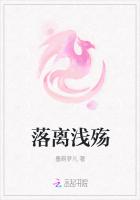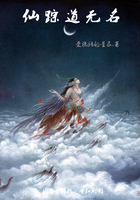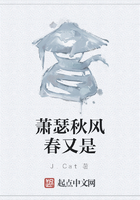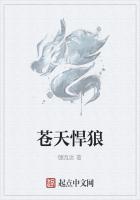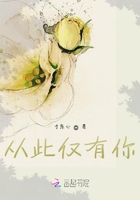The SERRAS reach as far as the kingdom of Daquem,[390]and border upon the territories belonging to the Ydallcao,and upon a city called Rachol that formerly belonged to the king of Narsymga;there has been much war over it,and this king took it from the Ydallcao.So that these ranges are in a way the cause (of the two kingdoms)never uniting and always being at war;and even on the side of Orya also there are ranges,but they are different from these,since like ours they have scrub and small patches of brushwood;these ranges are low and between them are great plains.On the extreme east of these two kingdoms you must know that the country is all covered with scrub,the densest possible to be seen,in which there are great beasts,and (this)forms so strong a fortress for it that it protects both sides;it has its entrances by which they pass from one kingdom to the other.In these passes on the frontier the king of Narsymga has a captain with a quantity of troops,but on the side of (Portuguese)India he has none,except as I have said.
Now turning to the gates of the first range,I say that at the entrance of the gate where those pass who come from Goa,which is the principal entrance on the western side;this king has made within it a very strong city[391]fortified with walls and towers,and the gates at the entrances very strong,with towers at the gates;these walls are not like those of other cities,but are made of very strong masonry such as would be found in few other parts,and inside very beautiful rows of buildings made after their manner with flat roofs.There live in this many merchants,and it is filled with a large population because the king induces many honourable merchants to go there from his cities,and there is much water in it.Besides this the king made a tank[392]there,which,as it seems to me,has the width of a falcon-shot,[393]and it is at the mouth of two hills,so that all the water which comes from either one side or the other collects there;and,besides this,water comes to it from more than three leagues by pipes which run along the lower parts of the range outside.This water is brought from a lake which itself overflows into a little river.The tank has three large pillars handsomely carved with figures;these connect above with certain pipes by which they get water when they have to irrigate their gardens and rice-fields.In order to make this tank the said king broke down a hill which enclosed the ground occupied by the said tank.In the tank I saw so many people at work that there must have been fifteen or twenty thousand men,looking like ants,so that you could not see the ground on which they walked,so many there were;this tank the king portioned out amongst his captains,each of whom had the duty of seeing that the people placed under him did their work,and that the tank was finished and brought to completion.
The tank burst two or three times,and the king asked his Brahmans to consult their idol as to the reason why it burst so often,and the Brahmans said that the idol was displeased,and desired that they should make a sacrifice,and should give him the blood of men and horses and buffaloes;and as soon as the king heard this he forthwith commanded that at the gate of the pagoda the heads of sixty men should be cut off,and of certain horses and buffaloes,which was at once done.
These Brahmans are like friars with us,and they count them as holy men --I speak of the Brahman priests and the lettered men of the pagodas --because although the king has many Brahmans,they are officers of the towns and cities and belong to the government of them;others are merchants,and others live by their own property and cultivation,and the fruits which grow in their inherited grounds.Those who have charge of the temples are learned men,and eat nothing which suffers death,neither flesh nor fish,nor anything which makes broth red,for they say that it is blood.Some of the other Brahmans whom I mentioned,who seek to serve God,and to do penance,and to live a life like that of the priests,do not eat flesh or fish or any other thing that suffers death,but only vegetables[394]and butter and other things which they make of fruit,[395]with their rice.They are all married,and have very beautiful wives;the wives are very retiring,and very seldom leave the house.The women are of light colour,and in the caste of these Brahmans are the fairest men and women that there are in the land;for though there are men in other castes commonly of light complexion,yet these are few.There are many in this country who call themselves Brahmans,but they lead a life very different from those of whom I have spoken,for these last are men to whom the king pays much honour,and he holds them in great favour.
This new city that the king made bears the name of his wife for love of whom he made it,[396]and the said city stands in a plain,and round it the inhabitants make their gardens as the ground suits,each one being separate.In this city the king made a temple with many images.It is a thing very well made,and it has some wells very well made after their fashion;its houses are not built with stories like ours,but are of only one floor,with flat,roofs and towers,[397]different from ours,for theirs go from storey to storey.They have pillars,and are all open,with verandahs inside and out,where they can easily put people if they desire,so that they seem like houses belonging to a king.These palaces have an enclosing wall which surrounds them all,and inside are many rows of houses.Before you enter the place where the king is there are two gates with many guards,who prevent any one from entering except the captains and men who have business there;and between these two gates is a very large court with its verandahs round it,where these captains and other honoured people wait till the king summons them to his presence.

